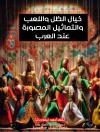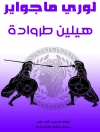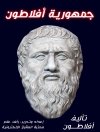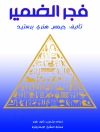Through a series of original essays by leading international
scholars, The Roman Empire in Context: Historical and
Comparative Perspectives offers a comparative historical
analysis of the Roman empire’s role and achievement and, more
broadly, establishes Rome’s significance within comparative
studies.
* Fills a gap in comparative historical analysis of the Roman
empire’s role and achievement
* Features contributions from more than a dozen distinguished
scholars from around the world
* Explores the relevance of important comparativist themes of
state, empire, and civilization to ancient Rome
Tabela de Conteúdo
Notes on Contributors.
Series Editor’s Preface.
1 Introduction (Johann P. Arnason).
Part I Expansion and Transformation.
2 From City-State to Empire: Rome in Comparative Perspective
(Kurt A. Raaflaub).
3 The Transition from Republic to Principate: Loss of
Legitimacy, Revolution, and Acceptance (Egon Flaig).
4 Strong and Weak Regimes: Comparing the Roman Principate and
the Medieval Crown of Aragon (D. A. Cohen and J. E.
Lendon).
Part II Late Antiquity: Division, Transformation, and
Continuity.
5 The Background to the Third-Century Crisis of the Roman Empire
(Adam Ziolkowski).
6 The End of Sacrifice: Religious Mutations of Late Antiquity
(Guy G. Stroumsa).
7 Contextualizing Late Antiquity: The First Millennium (Garth
Fowden).
Part III Destinies of the Roman Legacy.
8 The Franks: Rome’s Heirs in the West (Matthias
Becher).
9 The End of Rome? The Transformation of the Eastern Empire in
the Seventh and Eighth Centuries CE (John Haldon).
10 The First Islamic Empire (Chase F. Robinson).
Part IV Comparative Perspectives.
11 From City-State to Empire: The Case of Assyria (Mario
Liverani).
12 China’s Early Empires: The Authority and Means of
Government (Michael Loewe).
13 The Legs of the Throne: Kings, Elites, and Subjects in
Sasanian Iran (Scott Mc Donough).
14 The King of Kings: Universal Hegemony, Imperial Power, and a
New Comparative History of Rome (Peter Fibiger Bang).
Part V Conceptual and Theoretical Reflections.
15 The Roman Phenomenon: State, Empire, and Civilization
(Johann P. Arnason).
16 Roman-European Continuities: Conceptual and Historical
Questions (Peter Wagner).
General Index.
Index of Sources (selective).
Sobre o autor
Johann P. Arnason is Emeritus Professor of Sociology at La
Trobe University in Melbourne, Australia, and Visiting Professor at
the Charles University in Prague. His recent publications include
Civilizations in Dispute: Historical Questions and Theoretical
Traditions (2003); Axial Civilizations and World History
(co-ed., 2005); Eurasian Transformations, 10th to 13th
Centuries: Crystallizations, Divergences, Renaissances (co-ed.,
2005), and Domains and Divisions of European History
(co-ed., 2010)
Kurt A. Raaflaub is David Herlihy University Professor and
Professor of Classics and History Emeritus at Brown University,
where he was also Director of the Program in Ancient Studies.
Recent publications include The Discovery of Freedom in Ancient
Greece (2004, winner of the American Historical
Association’s James Henry Breasted Prize), War and Peace
in the Ancient World (ed., 2007); Origins of Democracy in
Ancient Greece (co-author, 2007); A Companion to Archaic
Greece (co-ed., 2009); and Epic and History
(co-ed., 2010).












